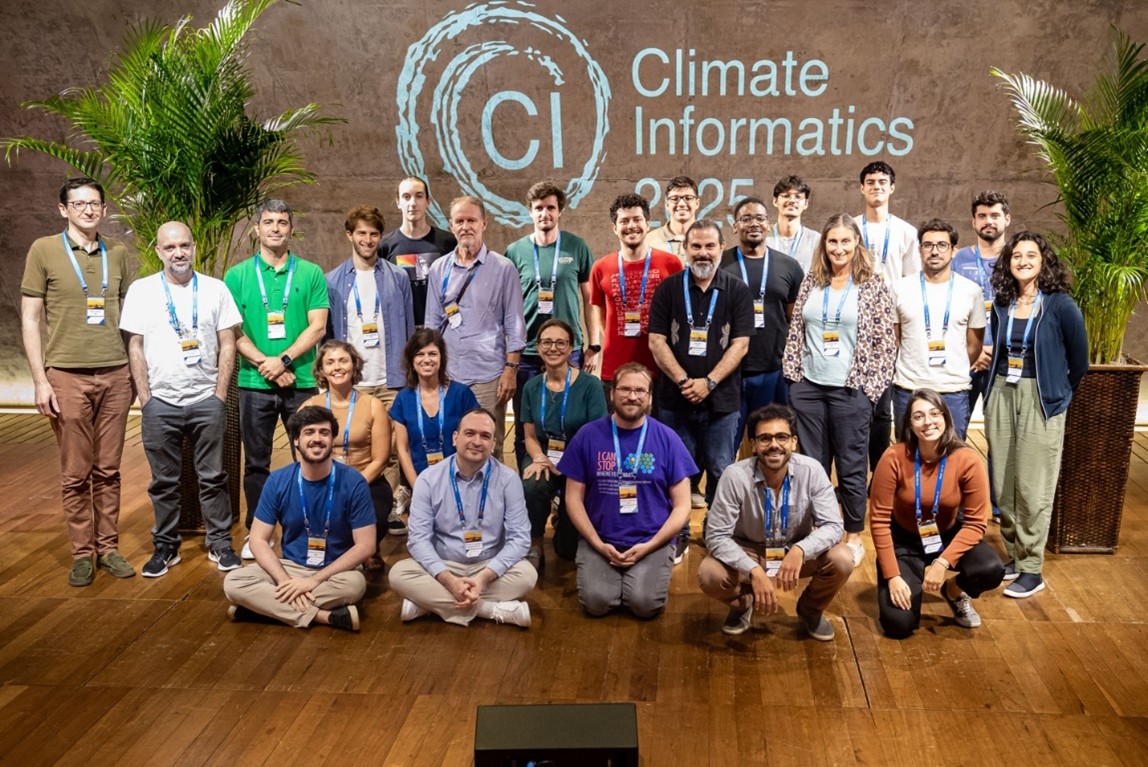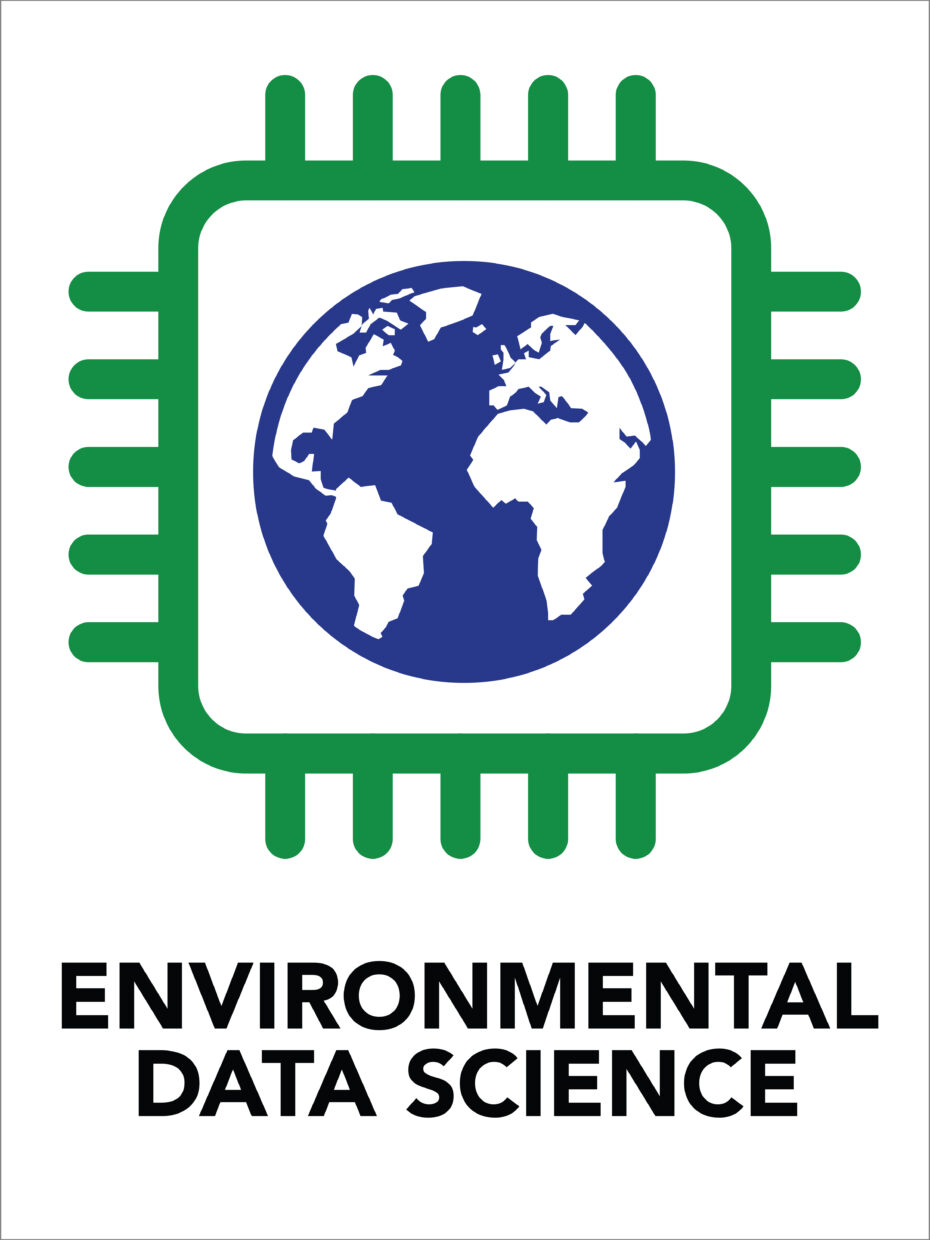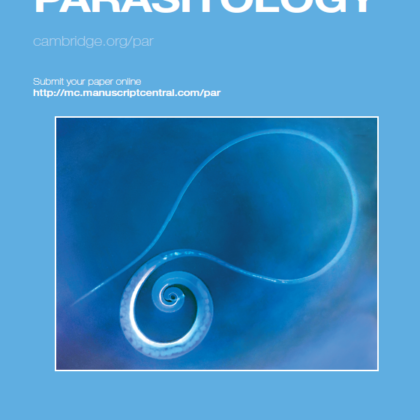Climate Informatics 2025: Exploring Climate Science and Data Science in the Global South

As many readers will know, COP30, the UN climate conference, got underway in Belém, Brazil this month. In this blog post, we’re pleased to report on another conference that was successfully held in Brazil earlier this year, showcasing the use of innovative data-driven approaches to understand changes to the climate.
Climate Informatics is an open community and a series of conferences promoting research that combines climate science with approaches from statistics, machine learning and data mining, Founded by Claire Monteleoni (University of Colorado Boulder & Inria, France) and Gavin Schmidt (NASA Goddard Institute for Space Studies) in 2011, in recent years the conference has alternated between the United States and Europe.
The 2025 edition of the conference (CI2025) departed from this pattern and was hosted at Fundação Getúlio Vargas (FGV) in Brazil. As the first Climate Informatics conference held in the Global South, the hybrid event fostered high levels of engagement and facilitated valuable interactions. The productive discussions resulting from the sessions, keynotes, and panels were a credit to the contributions of all presenters, attendees, and staff.
Since 2022, articles from Climate Informatics have been published as special collections in the open-access (OA) journal Environmental Data Science at Cambridge University Press. EDS, like all OA journals at Cambridge, is supported by a model of institutional agreements and extensive waivers for unfunded authors. This means any author meeting the peer review standard can be published, irrespective of the author’s institution or funding situation.
The full papers from CI2025 are now available in EDS as part of the Climate Informatics 2025 special collection. Additionally, the complete conference recordings and event photographs are openly available on the CI2025 website. This open-access collection and all supplementary materials reflect the diverse research presented, and we invite interested scholars to explore and cite these materials.
Authors who presented abstracts at CI2025 still have the opportunity to submit fully developed papers to EDS – as outlined in the Call for Papers, they have until the end of 2025 to submit to be part of the special collection.
We are also pleased to announce that preparations for CI2026 are underway. The conference is scheduled for April 27-30 at the University of Lausanne, Switzerland. Feedback from the CI2025 edition is being actively incorporated into planning for this next event.
The CI2026 call for papers will open in the coming weeks, with detailed submission guidelines to be posted on the conference website. We encourage the community to save the date and monitor the conference series website for updates.
CI2025 was a significant community-building event for those who work at the interface of climate and data sciences. We were particularly encouraged by the positive feedback from early-career researchers and look forward to building on this momentum. We hope to see you in Lausanne as our field continues to address new and complex research questions.

Stay on top of publications in Environmental Data Science by signing up for email alerts.
Learn how to submit your work to the journal here.







Sou Biólogo a trinta e sete anos, e trabalho com Áreas protegidas, manejo de fauna e flora, parcelamento do solo , animais marinhos, oceanos entre outros temas.
Solicito se possível for me atualizar com artigos, revistas entre outros materiais produzidos por vocês , sendo de grande interesse para mim.
Muito obrigado
(I am a biologist with thirty-seven years of experience, and I work with protected areas, fauna and flora management, land subdivision, marine animals, oceans, and other related topics. If possible, I would appreciate it if you could update me on articles, journals, and other materials produced by you, as they would be of great interest to me. Thank you very much.)